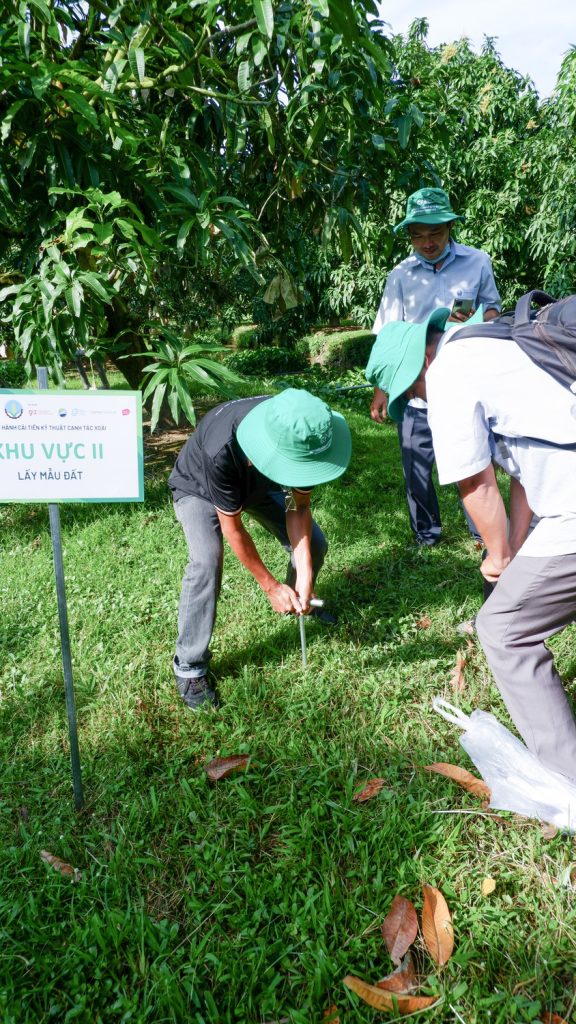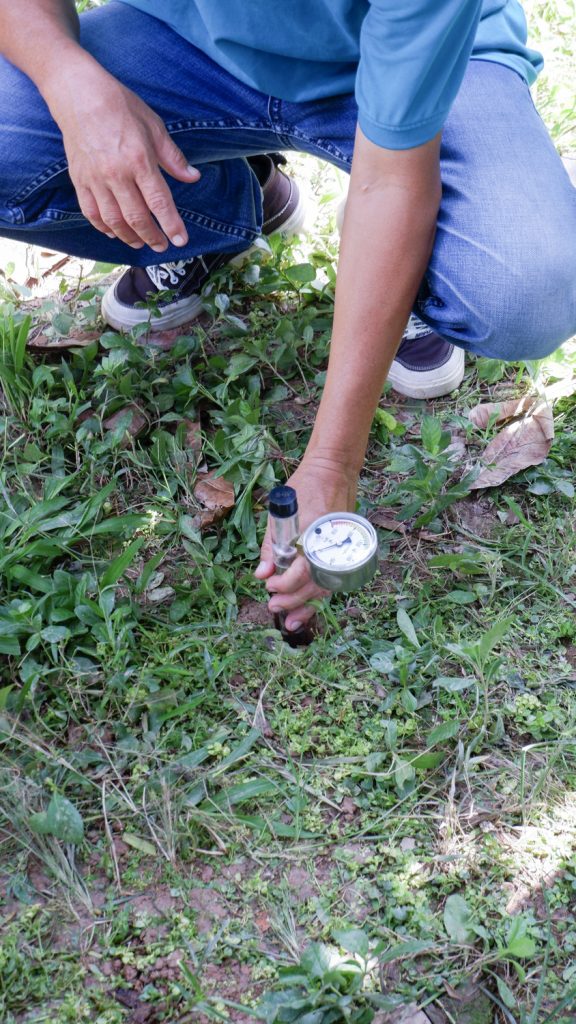From 8 to 11 November 2022 as part of the Mango Business School activities under the Green Innovation Centers for the agriculture and food sector (GIC) project: ‘Strengthening the Mango value chain in the Mekong River Delta’, project partners were trained in mango farming strategies related to efficient fertilizer application, pruning strategy, anthracnose control and irrigation strategy. The training was provided by experts from Can Tho University, Eurofins, Loc Troi and Fresh Studio.

All trainees were actively involved in the various training sessions
During the training, trainees learned how to prune branches to create canopy properly, the demand and calculation of soil nutrients, the reasons for soil and leaf tests, calculation the amount of water required for mango trees, determine the appropriate time to irrigate through smart devices, and identify, treat anthracnose. The highly participatory approach of the training resulted that all trainees were actively involved in the various training sessions.
The knowledge and methods trained during the classroom sessions were applied by the trainees during their assignments. They experienced what they learned on the day of practice in the demo farm. It was very exciting for them to practice measuring soil moisture through modern equipment such as tension meter, electric sensor and compared with manual method. They also practiced taking soil and leaf samples and performing pruning and anthracnose identification. Compared with the theoretical study in class, the practical day helps them understand the knowledge deeper and have the plan to apply these advanced techniques to their orchards in the near future.
About the project
GIC Vietnam is jointly implemented by Ministry of agriculture and rural development (MARD) and GIZ and funded by German Federal Ministry for Economic Cooperation and Development. The project aims to promote sustainable Mango Value Chain in six provinces of the Mekong River Delta (MRD): Dong Thap, An Giang, Kien Giang, Can Tho, Hau Giang and Soc Trang by fostering innovations on mango value chains.
This project aims to increase the productivity and income of small-scale farming households, create new jobs and improve resilience of the mango value chains through implementation of climate-intelligent innovations.






